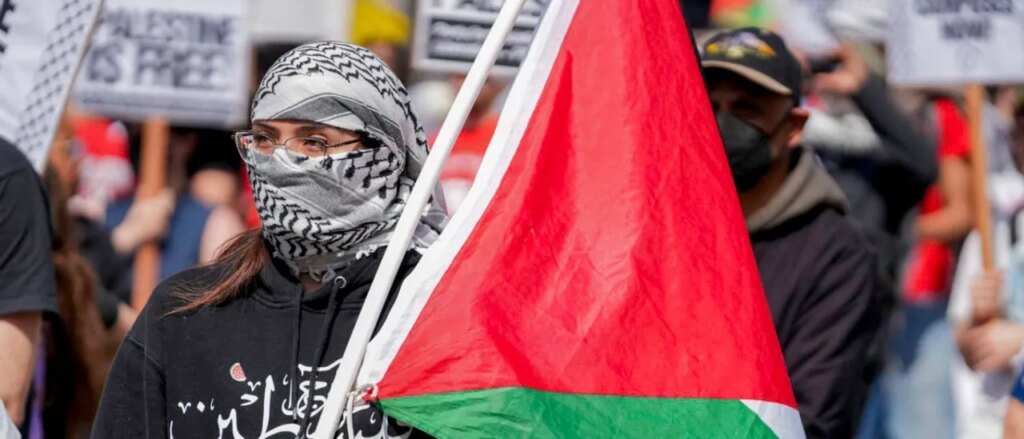Palestinian People’s Assembly Targets US Military Supply Chains
During an assembly in Detroit, Michigan, speakers outlined strategies to disrupt the shipment of essential US military equipment, specifically components related to F-35 fighter jets. Aisha Nizar, the organizer of the Palestinian Youth Movement, emphasized targeting commercial shipping lines, including Maersk, as part of an arms embargo campaign initiated last year.
Nizar expressed that members of the Pro-Palestine movement should focus on “vulnerable supply chains.” She suggested that the components used in F-35 jets are particularly exposed to “bold” actions aimed at halting their transport.
“What we learned,” Nizar mentioned, “is the need to identify these supply chains, understand their operations, and expose the broader infrastructure that supports them. This awareness might shed light on systems enabling ongoing violence.” She elaborated on how commercial carriers participate in arms trade, detailing the connection between warehouses in New Jersey and weapons deployment overseas. “Understanding the F-35 supply chain is crucial,” she noted, raising questions about intervention possibilities.
The F-35 is recognized as a versatile military aircraft capable of carrying advanced munitions. Multiple branches of the US military rely on it, including the Air Force, Navy, and Marines. It’s important not just for combat but also for intelligence and information-sharing functions. Nizar advocates for disrupting the supply chain to potentially prevent these aircraft from being used in military actions abroad.
“If a key point in the F-35 supply chain is interrupted, it could have significant repercussions back home,” she stated. “We need to be precise and strategic in our interventions—there are many opportunities to act, and we should not hesitate.” Nizar’s assertion that “Maersk is the target” hints at their commitment to more extreme measures, including addressing logistics firms involved in weapon transport.
The rhetoric presented by this group has raised eyebrows. Some critics argue that these actions amount to an attempt to undermine US national security by disrupting military supply networks. The Constitution clearly defines treason in terms of aiding enemies, and there are concerns regarding the implications of this activism for national safety.
The engagement of figures like Nizar raises lingering questions about motivations and the nature of their actions. Is it merely a quest for justice, or something more disruptive? The implications for US security and foreign policy are certainly complex.







